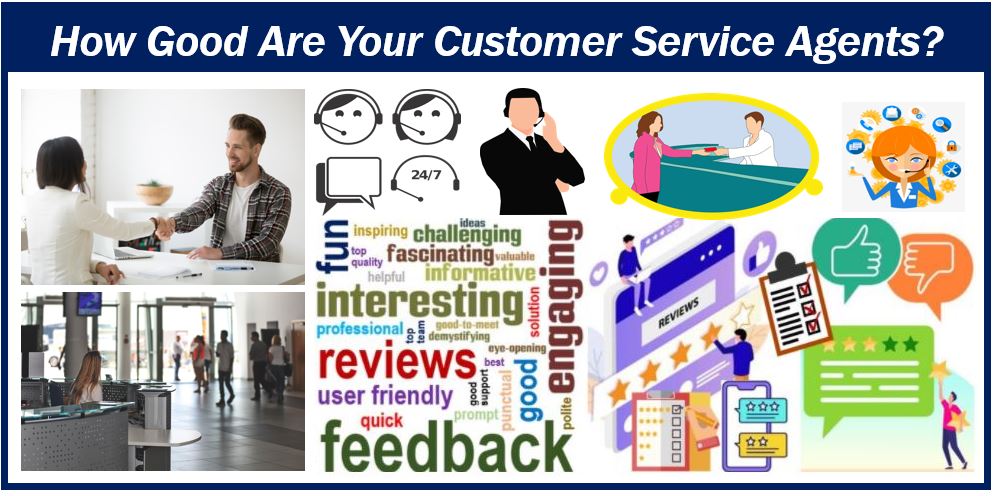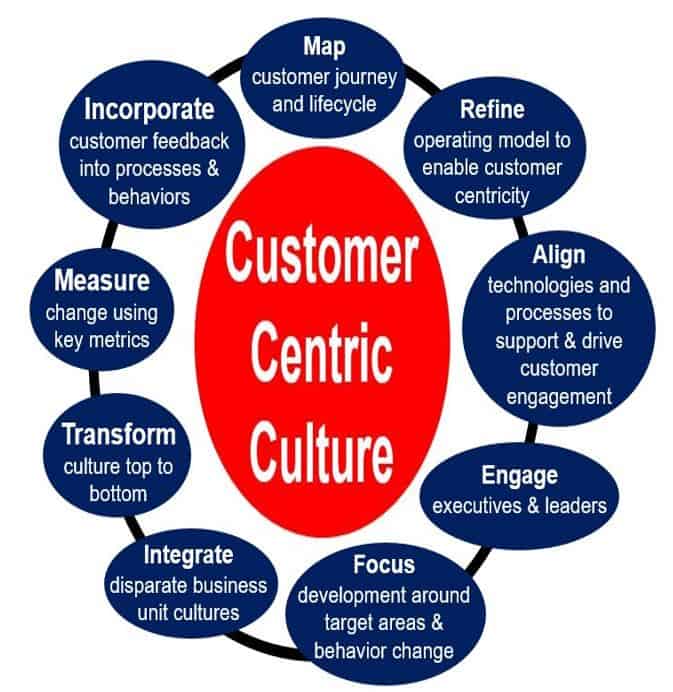You could have the best product/service in the world, but if your customer service team is incompetent, unreliable, or poorly trained, the repercussions can be dire. In simpler words, you might be forced to shut shop.
Great customer service adds value to the overall offering and helps forge a stronger, more intimate connection with your user base. This is why training your customer agents and laying the foundation right can make all the difference between a good and a bad customer experience (CX).

In this blog, we’ll look at the top 6 qualities that characterize a professional and results-driven customer service agent.
Let’s jump right in.
Top 6 Qualities of a Great Customer Service Agent
1. Having a Thorough Product Knowledge
Service agents cannot assist customers based on hunches, guesswork, or even intuition. First and foremost, a great customer agent is a product expert before they can be a CX expert.
Why is this necessary?
One, because the job requires the agents to troubleshoot common queries and FAQs related to the offering, 24x7x365.
Two, the agent should genuinely believe in the value addition of the product/service themselves before they can convince the user of its importance/benefits.
Three, the agents need to have a thorough and updated understanding of the product’s features, real-world applications, benefits, etc., in a data-driven and insightful way.
Four, agents need to personalize the customer experience and make the customers feel that they’ve got more value for their buck.
The learning: Getting to know the product inside out is a core skill for stellar customer service. It empowers agents to provide a customized, convenient, effective, and seamless experience.
2. Engaging in an In-Depth Data Analysis
As per a study by the McKinsey Global Institute, data-driven companies are 400% more likely to retain customers and 2,200% more likely to acquire new ones. Clearly, having a robust data analytics framework in place is critical to your organization’s organic growth.
Moreover, customers expect organizations to provide an end-to-end personalized and consistent experience. In fact, research by Accenture states that 91% of consumers are more likely to shop with brands that recognize, remember, and provide relevant offers and recommendations.
This is where training your agents to analyze, monitor, and use the right mix of data-powered tools can prove to be a game-changer. Top-tier agents can take a closer look at customer service analytics and draw meaningful conclusions to provide solid CX.
As we know, there’s one thing to access data, and the other to make sensible decisions based on it. An experienced service agent can use data like geographical location, buying behavior, age group, and predict psychology.
The learning: For an agent to provide a positive and productive customer experience, they need a better understanding of the user’s needs, wants, motivations, pain-points, behavior patterns, etc.- all of which can be extracted from intuitive data-led tools.
3. Demonstrating a Creative Problem-Solving Attitude
I feel there are only two instances when customers take all their energies and actually take a few moments to share their feelings on public platforms. One, when the experience is horrible. Two, when the experience is beyond memorable!
In this competitive business landscape, it is no longer sufficient to meet your customer’s expectations; you need to exceed them. This is why agents that have a natural bent of mind towards creative problem-solving can turn out to be your organization’s biggest assets.
Consider the case of the Gaylord Opryland Hotel. A customer was inquiring about an alarm clock in her room that plays light music while you sleep:

When she returned to the hotel after a conference, she found two clocks and a hand-written letter with her name on it:

No surprises for guessing that she became a die-hard fan of the hotel for life.
The learning: It is critical that your agents are given the flexibility and freedom to problem solve issues and deliver a superior CX. The idea is to encourage agents to think on their feet, go the extra mile, and strategize innovative ways to boost a customer’s loyalty towards the brand while building trust and an emotional connection.
4. Being a Communication All-Rounder
A customer agent that can communicate with confidence, conviction, and clarity will double up as a strong voice for your company and represent your brand in a good light to your customers. Here are a few characteristics of someone who can ace the art of communication and conversation:
- They can easily translate complex problems and concepts into easy-to-understand, bite-sized terms.
- They are detail-oriented and can get to the heart of the problem without losing their cool and calm.
- They can easily talk about potentially sensitive issues using positive words of encouragement.
- They can read between the lines and effectively understand the needs, frustrations, intent, and thoughts of your user base, and communicate the same to the brand.
The learning: Clear communication is another core skill that the agent needs to master to avoid miscommunications and the inevitable disappointment from the customer’s end. The end goal for every CX agent should be to keep the communication simple and direct, leaving no room for doubt/errors.
5. Driving Active Listening
As a customer support agent, engaging in active listening can pay off huge dividends during the process of troubleshooting. Here are a few tried-and-tested tips to keep in mind when interacting with customers and driving active listening:
- Listen to your customer’s feedback with full attentiveness, patience, and empathy in real-time.
- Go back to the insights and data collected to connect the dots, and provide relevant solutions.
- Always listen to the customer without pushing your own agenda.
- Never interrupt customers or assume that you know what they’re going to say.
- Use terms like “I hear what you’re saying…” and “Let me see if I got it correct, are you saying…?”, etc. to let the customer know that you were actually actively listening to them.
The learning: Being mindful of your customer’s needs, wants, and concerns can only happen if the customer support rep practices active listening. They also need to factor in the user’s emotional state and personality to provide a heartfelt and personalized response.
6. Delivering a Customer-Centric Support, 24×7

A customer agent that can think from the user’s perspective and genuinely understand the frustrations of a customer will stack up high on the emotional intelligence scoreboard. They know better than to take angry words personally.
Instead, they redirect their energies to understanding where the user is coming from and focus on delivering an empathetic response. If the customer feels heard and acknowledged, chances are that they’ll cooperate better, no matter how complex the problem.
The learning: Empathy plays a big role in driving a truly customer-first approach – it can make the customers feel validated in their anger. Agents need to be trained to walk in the customer’s shoes from time to time to get a grasp of the challenges the users might be facing with the product/service. One surefire way to gaining a customer’s trust is by reiterating the problem at hand to let them know that you’re actually paying attention to the user’s concerns.
The Bottom Line
A customer service agent has to don many hats and should be adept at multi-tasking (as we’ve seen above). But optimizing your human assets is essential to ensuring that your customer base stays happy and loyal, while you continue to boost the bottom line.
Look out for these six key skills and characteristics outlined above, and take your CX efforts to the next level – a must-have in today’s competitive landscape. What do you think?
Interesting related article: “What is Customer-Centric or Client-Centric?“

